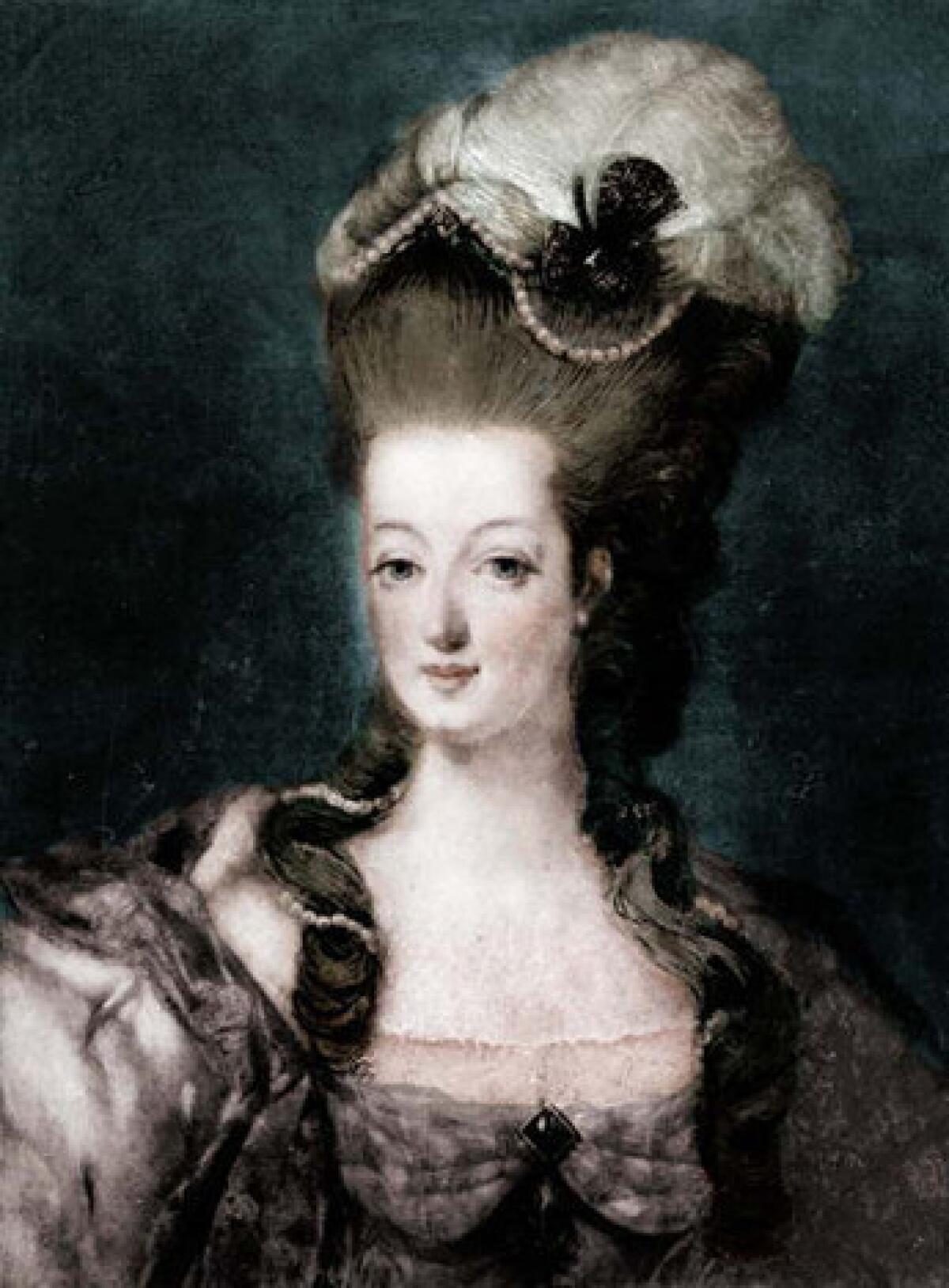Review: âThe Queenâs Loverâ has a fresh view of Marie Antoinette

Society can turn cruel and bloodthirsty toward those at the top. Julius Caesar, Mary Queen of Scots, Mahatma Gandhi, Presidents Lincoln and Kennedy ⌠the list is so long, we canât be expected to remember every victim. But why do certain deaths emerge as iconic, always fascinating to new generations?
Are we eager to see the greatest possible distance one soul can travel from a life of unimaginable glamour to an end in utter pain and humiliation? That might explain why no story remains more magnetic than the downfall of Marie Antoinette, wife of Louis XVI, roi de France.
The dramaâs been served up dozens of times, recently on film in Sofia Coppolaâs costume pastiche, âMarie Antoinetteâ (2006), and more poignantly in a newly released French movie, âFarewell, My Queen.â Now the award-winning Francine du Plessix Gray offers a fresh, original perspective in the novel âThe Queenâs Lover.â
As all Paris recalls to this day, a handsome, cultivated Swede, Count Axel von Fersen, fulfilled that eponymous role. Gray has chosen â boldly â to resurrect âToinetteâs life through Fersenâs eyes in a fictional memoir unveiled to the world by the countâs sister, who adroitly fills in historical gaps and provides a highly partisan view of her dashing brother.
Historical fiction or fictionalized history? The difference matters, as the latter takes fewer liberties with fact. Grayâs novel hews closely to first-class, first-hand research, often quoting Fersenâs journals, recently resurfaced letters and contemporariesâ accounts. The trouble is, real life seldom gets to the point (if there is one) as directly as freer fiction might. The story of Axel and âToinette starts slowly. They first meet as âkidsâ at a Parisian ball. But Fersen drops the ensuing flirtation to sail off with Lafayetteâs forces to fight for American independence.
The war is a tedious interlude, so he complains, and the reader concurs. Even after his return to Paris, the courtierâs life and ecstatic trysts with the queen fail to ignite on the page. âHave you ever had the sense â it is sublime â that you were the first to ever fulfill [a womanâs] sensual needs? All this and heaven too I experienced.â Lofty sentiments and phrases may have marked the historical Fersenâs writing style, but they donât serve literature well.
Everything changes in 1789, the year the Bastille is stormed. From here on in, the novel wonât leave your hand. We know the tale but absolutely must have it again, and Gray/Fersen provides sharp new details. Louis XVI, âfat pig Capetâ to the revolutionaries, is depicted with delicate affection, up to the scene of his beheading.
Marie Antoinette matures from flibbertigibbet to devoted mother and wife and finally to lone heroine suffering unbearable deprivations. Fersen engineers an elaborate escape attempt, but the royals are caught in midflight, undone by their own staggering distance from reality. From then on, the people, and destiny, will have their murderous way, leading to the guillotine.
If the reader warms increasingly to the characters of the royal couple and the changes in them wrought by suffering, the figure of Count Fersen is more problematic. An adulterous womanizer and bon vivant to the end of his days, a deeply conservative royalist who refers to the commoners only as ârabbleâ (shades of Nicolas Sarkozy), his blinkered self-righteousness gives a wondrously lopsided view of the French Revolution. He is acute on the diplomatic intrigues and the mass insanity of crowds but scarcely mentions the starvation and dire straits of the populace in a country crushed by debt and taxes â in large part because of the kingâs decision to militarily support the American revolutionaries.
After the executions, Fersen returned to his rich estates and government career in Sweden. Here, a pure work of fiction might wind down with remembrance, philosophizing and old age. But history chose another ending: In 1810 in Stockholm, Fersen himself is killed by an outraged mob. Gray develops the scene magnificently, letting the pity, ironies and echoes speak for themselves. One can almost hear the two high-born lovers, both sacrificed on the altar of revolution, call back and forth to each other through time.
Maristed is the author of several novels, including âBroken Groundâ and âOut After Dark.â
More to Read
The biggest entertainment stories
Get our big stories about Hollywood, film, television, music, arts, culture and more right in your inbox as soon as they publish.
You may occasionally receive promotional content from the Los Angeles Times.










